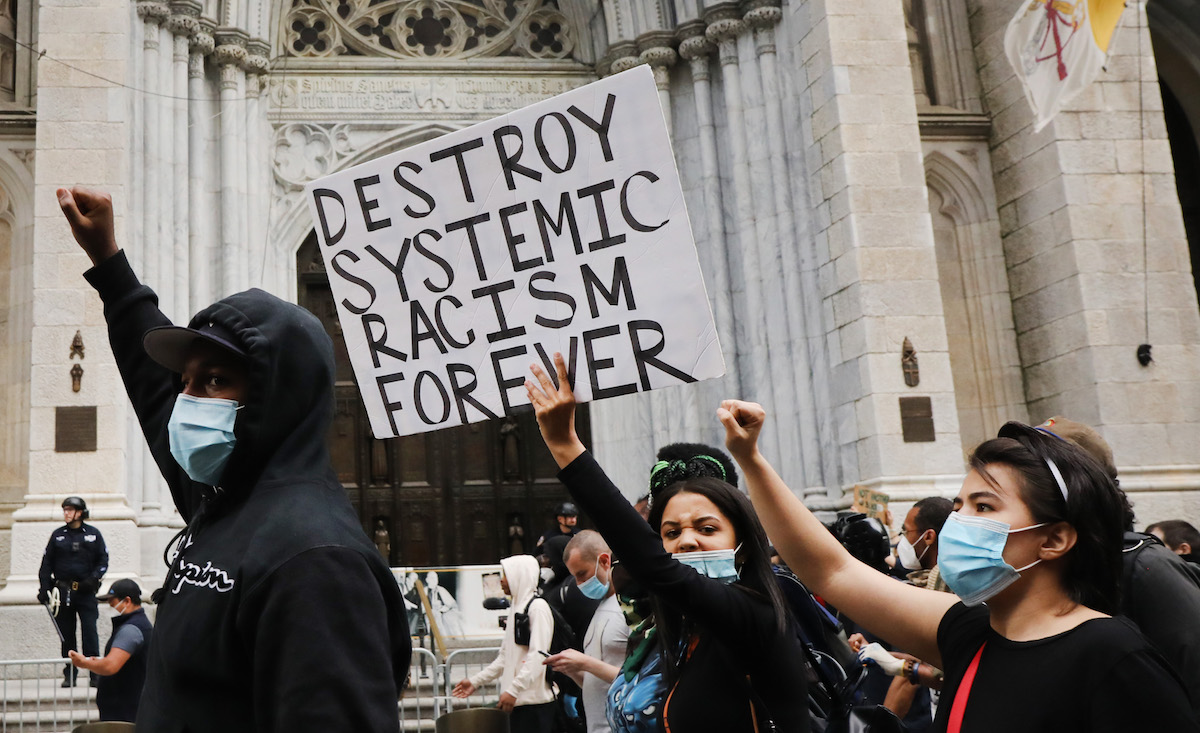As we tick over into more than a week of protests—which have now gone national and international—in the wake of the police killing of George Floyd (and Tony McDade, Breonna Taylor, Sean Reed, David McAtee, the vigilante killing of Amaud Arbery, and too many others), there’s one question on a lot of would-be allies’ minds: How can I learn more about racism in our country and what I can do to help eliminate it?
Unfortunately, that has resulted in a lot of people directly asking that question of those in the Black community who are have already put more than enough work into this fight and are under a tremendous amount of stress, but this conversation is not new. There are resources out there to educate yourself without putting the extra burden on someone else to point them out to you, so we’ve collected just a few here for your convenience.
First up, here’s an entire, month-long lesson plan put together by Bryanna Wallace & Autumn Gupta.
https://t.co/9IPHChxdp7 pic.twitter.com/aWRJ7sgWw4
— Bryanna Wallace & Autumn Gupta (@Autumn_Bry) June 1, 2020
The plan includes different options for how much time you’ve got to dedicate to it each day, whether it’s ten minutes, 25, or 45—or, of course, you can just do all of them. It includes things you can watch, listen to, and read to educate yourself, as well as specific actions you can take. (And there are tons of people asking how they can compensate the pair for this work with no response yet, but we’ll update here if and when that information is available.)
However, you can and should look to go above and beyond what the lesson plan entails, and it features additional resources (where much of the plan came from) to help you do just that. One of them is “75 Things White People Can Do for Racial Justice,” which features suggestions that very from things like finding out about your local police department policies and fighting to change, to organizing a watch party for Ava DuVernay’s 13th—which you can watch online, for free, right now, without even needing a Netflix subscription:
If you’ve already watched it and are looking for more like it, Wyatt Cenac tweeted out an extensive list of content suggestions for HBO to run in the middle of all of this, which can also double as your own personal watchlist—if, that is, you have access to HBO.
Just thinking out loud here, but @HBO has seven channels.
Maybe instead of playing La La Land and John Wick 3 on HBO2, they could marathon the many documentaries they’ve produced that might speak to this moment.
Like @SpikeLeeJoint‘s “4 Little Girls.” https://t.co/F73tr2ZOTw— Wyatt Cenac (@wyattcenac) June 1, 2020
And 2018’s, “Say Her Name: The Life and Death of Sandra Bland.”https://t.co/eO3b4PWyIC
— Wyatt Cenac (@wyattcenac) June 1, 2020
Our own Princess Weekes has also put together plenty of educational content right here on The Mary Sue (a lot of it located under our Black History Month tag), from histories of slave rebellions to novels by Black authors—speaking of which, it’s good to remember the power of fiction in shaping our perspective, and that it’s important to make sure we’re seeking out material from Black creators.
Luckily, there are tons of lists around of books and authors you should give your time to, from the likes of The Oprah Magazine, Penguin Random House, PBS, Mental Floss, HuffPost, BuzzFeed, and more. USA Today has both fiction and nonfiction suggestions, and Time has alternate titles in case the antiracist books that have been recommended to you are currently sold out because everyone’s finally doing their homework.
Even all of these are far from exhaustive, and the ally resources and anti-racism resources utilized by the lesson plan up above each feature their own lists of content—and links to still more lists and to organizations you can follow for still more information, because there’s just that much to learn. Here’s even more from The Cross Cultural Solidarity History Education Project. Taking all of this in is a massive task, but that’s the easy part compared to all the work that’s been done to fight this fight so far and bring these resources into being in the first place.
Taking responsibility for making use of them is the least we can all do.
(image: Spencer Platt/Getty Images)
Want more stories like this? Become a subscriber and support the site!
—The Mary Sue has a strict comment policy that forbids, but is not limited to, personal insults toward anyone, hate speech, and trolling.—









Published: Jun 3, 2020 11:45 am